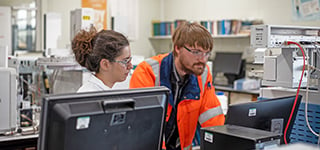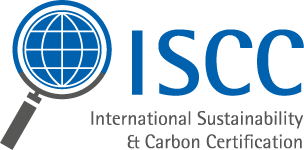
Sustainable Aviation Fuel (SAF) - solution for climate-neutral flying
The urgency of sustainability and environmental protection is setting the agenda for modern aviation. With rising passenger numbers, increasing air freight volumes and specific political directives, the search for alternatives to fossil-based aviation fuels and effective strategies to reduce CO₂ emissions is intensifying. In this context, alternative fuels - Sustainable Aviation Fuel (SAF) - are proving to be a key innovation for achieving climate-neutral air travel. Learn more about the various technological solutions and discover which strategies have already been transformed from visionary concepts into tangible realities.

Alcohol-to-Jet (AtJ) process can help deliver sustainable flying
Sustainable flying is increasingly likely to become a reality with the introduction of Sustainable Aviation Fuels (SAF). In September 2023 the European Parliament approved the bloc’s Sustainable Aviation Fuel mandates in the push to dramatically cut aviation emissions. There is a growing demand for action as the legal framework and SAF quota commitments by the airlines begin to take shape. The Alcohol-to-Jet (AtJ) process is one of several production options. You can find out exactly how it works and what advantages it offers here.

SAF from Haltermann Carless contributes more climate-neutral aviation
The transportation sector is changing - and what has long been an essential part of research and development in the automotive sector is now increasingly finding its way into aviation: sustainable solutions to reduce CO2 emissions. Alternative fuels, so-called Sustainable Aviation Fuels (SAF), play an important role in this context and are a significant driver for GHG emission reduction in aviation. Read here how tangible this forward-looking topic already is and the pioneering role that Haltermann Carless is playing.

Sustainable Aviation Fuel: Important driver for sustainable flying
Mobility has always been part of human visions and ideas, as well as a decisive driver for progress. Aviation plays a particular role in this and there is now no destination in the world that cannot be reached in 24 hours. However, air travel represents a huge challenge if we wish to ensure the protection of our climate. To make flying more sustainable, new technologies, alternative aviation fuels and new concepts are being pursued. Read more about the developments towards sustainable flying.

Interview: Dr Harald Dialer talks to Global Energy Solutions about SAF
How can climate neutrality be achieved for the whole world over the next 50 years without limiting prosperity? Global energy solutions as possible paths to climate neutrality - this is what the association Global Energy Solutions wants to achieve. As a pioneer of sustainable chemicals and fuels, we are pleased to have been invited for an interview on the subject of Sustainable Aviation Fuel (SAF). Dr Harald Dialer, our Chief Commercial Officer, talks about current developments, our goal to be the first commercial producer of SAF in Germany and explains why ramping up SAF production is such a challenge.

ReFuelEU Aviation Regulation targets increased SAF usage
Sustainabile Aviation Fuels have gained considerable momentum in the aviation industry in recent times, due to their potential as a drop-in replacement for conventional fossil aviation fuels. Interest is also supported by the lack of sustainable alternatives with hydrogen or electric powered aircraft deemed unfeasbile and not financially viable in the short term. The European Union have underlined their focus on Sustainable Aviation Fuel (SAF) through the Green Deal and underpinned this with clear numbers and mandates in the ReFuelEU Aviation draft regulations. What, though, exactly does the draft regulation mean and what impact could it have on the SAF market in the coming years? Find out more here.

SAF: Which feedstocks can be used for SAF sustainable aviation fuels?
Without Sustainable Aviation Fuel (SAF), a short-term reduction of CO2 emissions in aviation is not feasible. The European Green Deal and the subsequent Fit for 55 package therefore focuses on the increased use of biofuels in aviation. In the framework of these packages, the raw materials used in production are generally classified under the term ‘generations’ But what precisely is the meaning behind this classification? Find out more about the different feedstocks and future trends.
Latest Blog Posts
Topics
- Aerospace (7)
- Agrochemicals (7)
- Aromatic Solvents (8)
- Automotive Industry (4)
- Base Oil (3)
- Construction (19)
- Digitalisation (3)
- Extender Oil (3)
- Food Industry (3)
- Fuels (6)
- Insulation (17)
- Middle Distillates (16)
- Paints, Coatings & Adhesives (5)
- Pentanes (29)
- Pharmaceutical Industry (11)
- Racing Fuels (2)
- Refrigerator Industry and Cooling Logistics (4)
- Silicone Sealants (1)
- Sites & Production (7)
- Solvents (16)
- Supply Chain (11)
- Sustainability (31)
- Sustainable Aviation Fuel (SAF) (9)
- Water Treatment (3)


















